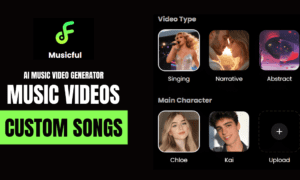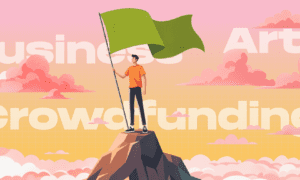Prior to the 1990’s, music was a thriving industry. Record sales skyrocketed, and music executives enjoyed success bled from decades before. The golden age of recording had seen acts like The Beatles, The Rolling Stones, David Bowie and Prince (just to name a few) make history in the industry. Both in their innovations to the craft and their unique charisma that seemed to radiate through culture.
The Early Days of the Internet
Fast forward to the eve of the millennium and the dawn of the internet. The music industry was hit with a relatively simple concept that it ultimately buckled underneath: file sharing. The ability to compress digital information and send it across personal devices cut a multimillion dollar cultural industry to half of its former glory.
The early days of the internet promised an open, decentralized platform for all. And it was that way at the beginning, allowing for companies like Napster to jump start a process that the industry is still crippled from. With file sharing software, copyright and publishing law became nearly obsolete. How could labels and artists claim ownership of their work if anyone can get online and take it? The answer to this new age problem came about a few years later in the form of streaming.
Streaming and Publishing
Streaming solved a big digital problem in the industry: piracy. With streaming services being basically affordable for everyone, it made no sense to steal music through file sharing software or torrent websites.
Music publishers and musicians alike have been trying to bring the value back into music for close to a decade. Streaming has helped this process, making it harder to steal and easier to attach copyright to published works.
5g and Blockchain Technology
With the rise of 5g, artists and managers are acting fast to both understand and utilize blockchain technology to prepare for another technological upheaval. The speed of 5g means the return of decentralized networks, and a potential resurgence of piracy. While piracy still happens, it’s much harder to get away with. 5g and blockchain technology, the driving force behind Bitcoin and cryptocurrencies, stands to change that.
Blockchains and NFT’s
Blockchains are essentially a ‘chain’ of information made out of encrypted blocks. Each one is identical and if changed, becomes apparent in the entire system. This makes it ideal for sending information such as currency. It is also being used to attach ownership to works of arts in the form of NFT’s (Non Fungible Tokens).
An NFT is a piece of data stored within a blockchain. With NFT’s, artists are able to attach a digital signature to their work adding an identifying tag to the media. We’ve seen artists of all mediums experimenting with this new marketplace, with varying degrees of success. This has major implications and possible utilizations for music publishers, songwriters and managers alike.
The advanced of the internet is sure to create major changes in all industries, and especially the creative industries. Some entrepreneurs such as Mark Gillespie of Three Six Zero are exploring the potential uses of this technology in tandem with streaming. The industry needs to be prepared, sooner rather than later, for a major shift in publishing and copyright law.



































